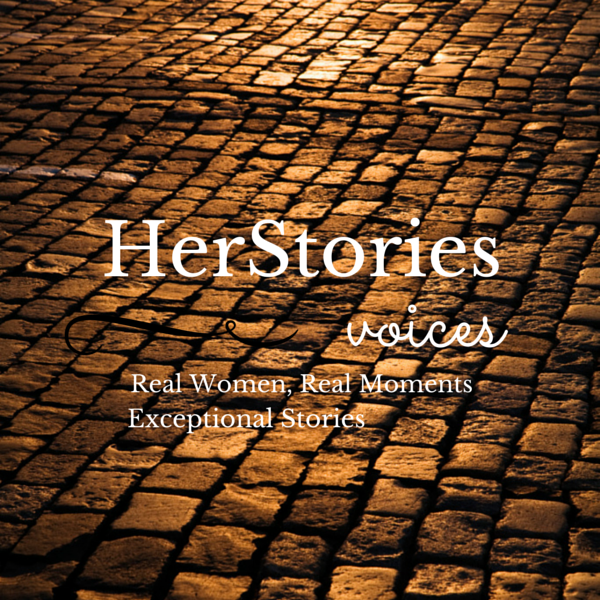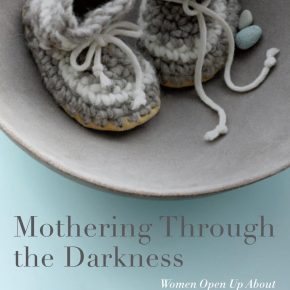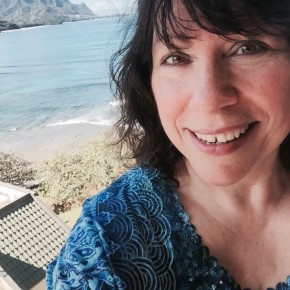Today, I’m excited to share a beautiful essay from Justine Uhlenbrock. I’d like to thank everyone for their patience as I’ve gotten my “sea legs” here at The HerStories Project. I’ve read so many beautiful essays in the last few weeks, and I’m in awe of the talents of my fellow writers. The good news is that I’m almost (although not quite) caught up. We have some wonderful essays to share with you over the next couple months. Today’s essay is about Justine’s grandmother, and the many gifts she’s received from her. It’s a story that will resonate with many, as it’s about the difficulty of letting go of those we love. —Allie
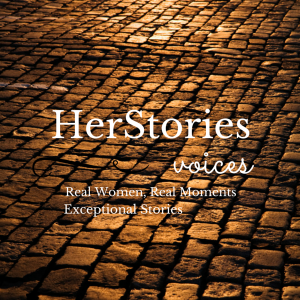
Gifts From Grandma
When I was a little girl, my grandmother frequently gave me gifts. These trinkets usually had at least one previous owner, but I didn’t care. On Sundays after Mass, my cousins and I would squeeze in the backseat of her hot Oldsmobile as she drove slowly around the neighborhood, hunting for garage sale bargains. Sometimes the gift was brand new, a souvenir from one of the many trips she and my grandfather took abroad: nesting dolls from the Ukraine, perhaps, or an oversized beaded t-shirt scrawled in cursive script reading, “Welcome to Bali!”
Even though I am grown, she is still giving me things. Today’s gift is a real treasure, she says. I am to choose my favorite teapot from her collection in the china cabinet, a massive ornate antique that is as ill suited to her sunny Florida bungalow as the large Persian rug under my bare feet. In a way, the mismatch suits my grandparents. They’ve never been the type to value fitting in over going their own way. A prime example of her bucking the system was her decision, after attending Mass for more than half a century, to leave the Catholic Church in favor of my grandfather’s synagogue.
I open the hutch door and a pleasant odor wafts out, a faint mix of cedar and silk napkins. I recall that she used to keep apricots—my favorite childhood snack—in its drawers for me, and I am struck with the sudden urge to climb inside the cabinet and breathe in its sturdy scent. Instead, I look over the variety of teapots, picking them up to feel their heft and imagine the stories they contain.
I select a delicate white porcelain pot with an intricate blue pattern and five matching teacups, which seem more like small bowls, as they have no handles. I have a hunch the set is from China. Turning the small lid over, I notice the telltale calligraphic lettering. I return to my seat at the dining table with my prize. The sliding glass patio doors are wide open in front of us, letting in a warm ocean breeze. A large grandfather clock chimes away the quarter-hours. Its familiar sound carries yin, the tranquil nostalgia of youth; and yang, the persistent march of time forward. But just for a moment, time slows to a stop while we talk.
Grandma smiles in approval of my selection and tells me its story. As I suspected, a former Chinese student gave her the set. She pauses as she tries to remember whether the sixth cup went missing or was broken, then she turns to me with a question.
Did I know she was born in the Chinese Year of the Rabbit?
“Did I ever tell you” is how she starts most of her stories lately. Memories that gripped her like a comfortable scarf are coming unraveled. Each bears some familiarity of feel and weight, but without the instructions on how they knitted together, her thoughts are a pool of colorful yarn, attractive but unconstructed.
“I learned from the Chinese calendar that I’m a Rabbit, born in 1927,” she begins. “And what is the Rabbit? It’s the happy, lucky sign, and I couldn’t agree more. It might sound corny, but that’s how I feel about my life.”
I know this story, but my smile beckons her to continue. Grandma’s stories are like nursery rhymes I can recite by heart, yet they are full of meaning to process with my adult mind. She knows about the Chinese calendar from her years in Beijing in the early 1990’s, the great adventure of her life. The student who gave her the teapot—in gratitude for teaching her English and as a token of respect—was one of many hotel employees to whom Grandma taught on her volunteer assignment.
A diminutive four-feet-eleven, what my grandmother lacks in stature she makes up for in a vibrant personality. She’s her own yin and yang blend of pride and self-deprecation, grace and humor. By the time she departed China after two years, no fewer than twenty students knew her as “Mom,” and she referred to them as her Chinese sons and daughters, the most cherished of whom she gave the meaningful Christian name of “Grace.” Over two decades later, she still speaks with Grace on the phone almost daily.
“I’m giving you this teapot because I’m not getting any younger,” she tells me, “and I want to experience the joy of seeing my treasures find new homes!”
It’s a bittersweet gift, and I struggle to put words to my sorrow. As she advances into her last years, osteoporosis causes Grandma’s fragile bones to snap all too easily. I hear of her pain and am mired in suffering on her behalf. The danger of our close relationship is it leads me to suspect I know her troubles without asking. Blinded by grief, I grope for solutions, clinging to advice that lets me decide what she needs to do to keep safe—that she must sell the home she loves and submit to my fearful rule.
I try starting the conversation again about her moving closer to her family so we can care for her. She leans over to retrieve a book, The Prophet by Khalil Gibran, from her shelf. Because of her glaucoma, she can no longer read, so she asks me to turn to the chapter about joy and sorrow, and I read:
When you are sorrowful look again in your heart, and you shall see that in truth you are weeping for that which has been your delight.
“You can keep the book too,” she says with a smile.
*******
We go for a stroll on the beach. I offer her my arm to steady her gait. Since her diagnosis of Parkinson’s disease, she walks in a disorderly zigzag. To have Parkinson’s is to be trapped inside a body that no long follows the brain’s orders. But in the midst of challenging symptoms, she manages to find the comedy. In her Parkinson’s exercise class, she says everyone sways in their chairs as if to the beat of music no one else can hear. She describes it as a self-directed Hokey Pokey, chuckling, “You put your right arm up, and you shake it all about…”
From a distance, I watch pelicans swarm a fisherman as he guts the day’s catch. One of the birds has a wounded wing. Probably from a speedboat, I frown. Marco Island is full of many permanent residents—at the post office a sign in the parking lot reads, “Look Before Backing”—but younger snowbirds land here on vacation now too. They zip by on skidoos and bring with them stores overflowing with mawkish souvenirs and flavored rums. I might be the only person on this beach—apart from my grandparents—who longs for the time before you could buy a hermit crab for a buck or a coconut that’s been carved in the shape of a monkey. I’ve never been fond of change.
When we arrive home from our walk, my mind is still on her dwindling physical ability. I ask how her latest doctor’s appointment went. “Great!” she says. “I told a joke he wants to use. What’s the difference between a doctor and God?” She pauses, a grin creeping onto her face. “God doesn’t think he’s a doctor.”
“Yeah, but what’d he say?” I ask, probing for more useful information.
She shrugs, “That I have Parkinson’s.” Then she smiles. “Did you hear what George Burns’ doctor told him? He said, ‘George, you’ve got to stop it with the booze and the women. It could lead to all kinds of problems, even death.’ And you know what George said?”
This time I get to tell the punch line. “‘If she dies, she dies!’”
Her smile fades as she confides, “My doctor knew I had Parkinson’s because I didn’t swing my arms when I walked.” She perks up, shoulders proud. “But I do swing them now. I want to look normal.” I am grateful for this glimpse at her basic human desire to belong.
******
The next morning, I finish The Prophet by the pool, peering over the text to watch my grandfather tend his tomatoes in the sandy soil, the unyielding sun and the burrowing tortoise undermining his hard work. He pauses to tell me of a conversation Grandma had with me in her living room a few months ago. Only I wasn’t actually there. Even her glaucoma can’t explain away this mistake.
Picturing her in animated discussion with an empty armchair, I laugh at his anecdote. Is inappropriate laughter one of the Kübler-Ross stages of grief? I laugh not just because I’m amused, but because I accept that humor is how they frame their life narrative. I laugh because if I ever start talking to imaginary people, I hope the ones I love will pretend it is funny. “Well, I certainly hope I said something interesting” is all I can think to say.
Grandma calls to me from inside the house. “Jeanne?” I hope calling me by my aunt’s name is slurred speech and not dementia talking, but I recognize it could be a generous distinction. I find her in her bedroom searching her jewelry box for another trinket to give me—something to be remembered by, she says. I place my hand on hers, squeezing it to steady the tremble as she fumbles with a silver clasp. “I got this necklace in Mexico the year you were born. A beauty for a beauty,” she squeezes back.
She motions for me to sit with her. “My doctor says I’m dying,” she says, “but I have lived a good life. I can’t say I’m not afraid of what’s going to happen, though even if I don’t have much time left, I know I am right where I want to be.” Her candor is, I realize, a final gift to me, and her words bring me back to the truth: I suffer because I lack control.
But control was an illusion. To confront the illusion, I begin the difficult task of letting her face the end of life in her own exquisite manner. I choose to see a glimmer of beauty in their delicate balance, the joy within their sorrow. I decide I will offer Grandma love and dignity—and maybe a little soup—but not control, not fear. Sitting with her on her bed, I begin to acknowledge and express my anticipatory grief to her without shame and judgment, as she teaches me is the Chinese way. She says I must let go not of her but of my emotions.
Like after a dream, the subtle outline of meaning diminishes as I return to the rush of everyday life. My grandmother’s wisdom eludes me, easier praised than done. I am tortured by the thought of losing her. I am even more tortured by the thought that Parkinson’s might steal her dignity before the end comes. But I am determined to let her go. As a mother, I am well acquainted with the task of letting go. I surrender authority of my kids on a daily basis to let them make their own decisions. I quiet my fear so they—and I—can learn from their life experiences.
I am transcribing my recordings of Grandma’s memories into an anthology, a gift for future generations. In retelling stories of the past to my daughters, I hope we will understand better the path we travel now. Perhaps someday my girls will recount these stories to their children in admiration of the mothers who came before them.
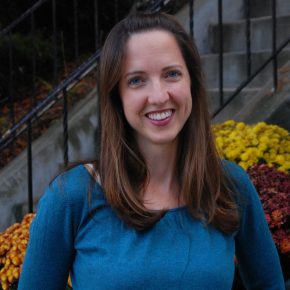 Justine Uhlenbrock is a writer, doula, and self-care evangelist. Her essays about motherhood and heritage have appeared on Mamalode and Literary Mama, where she is an editorial assistant. She lives with her family in Decatur, Georgia and can be found on Twitter (@lonehomeranger) and her website, justineuhlenbrock.com.
Justine Uhlenbrock is a writer, doula, and self-care evangelist. Her essays about motherhood and heritage have appeared on Mamalode and Literary Mama, where she is an editorial assistant. She lives with her family in Decatur, Georgia and can be found on Twitter (@lonehomeranger) and her website, justineuhlenbrock.com.
**We will be sharing two more fantastic essays in the next month, and then we will take a break for the holidays. Voices will resume in January 2016 after this break. We are currently accepting submissions for original essays, but do know that if your piece is accepted, it will not run until January or later. Submissions guidelines can be found here, and emailed to our assistant editor Allie at herstoriesvoices@gmail.com
Keep reading
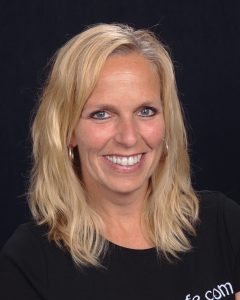 Chris Carter is a SAHM of two pretty amazing kids. She has been writing at TheMomCafe.com for over five years, where she hopes to encourage mothers everywhere through her humor, inspiration and faith.
Chris Carter is a SAHM of two pretty amazing kids. She has been writing at TheMomCafe.com for over five years, where she hopes to encourage mothers everywhere through her humor, inspiration and faith.


